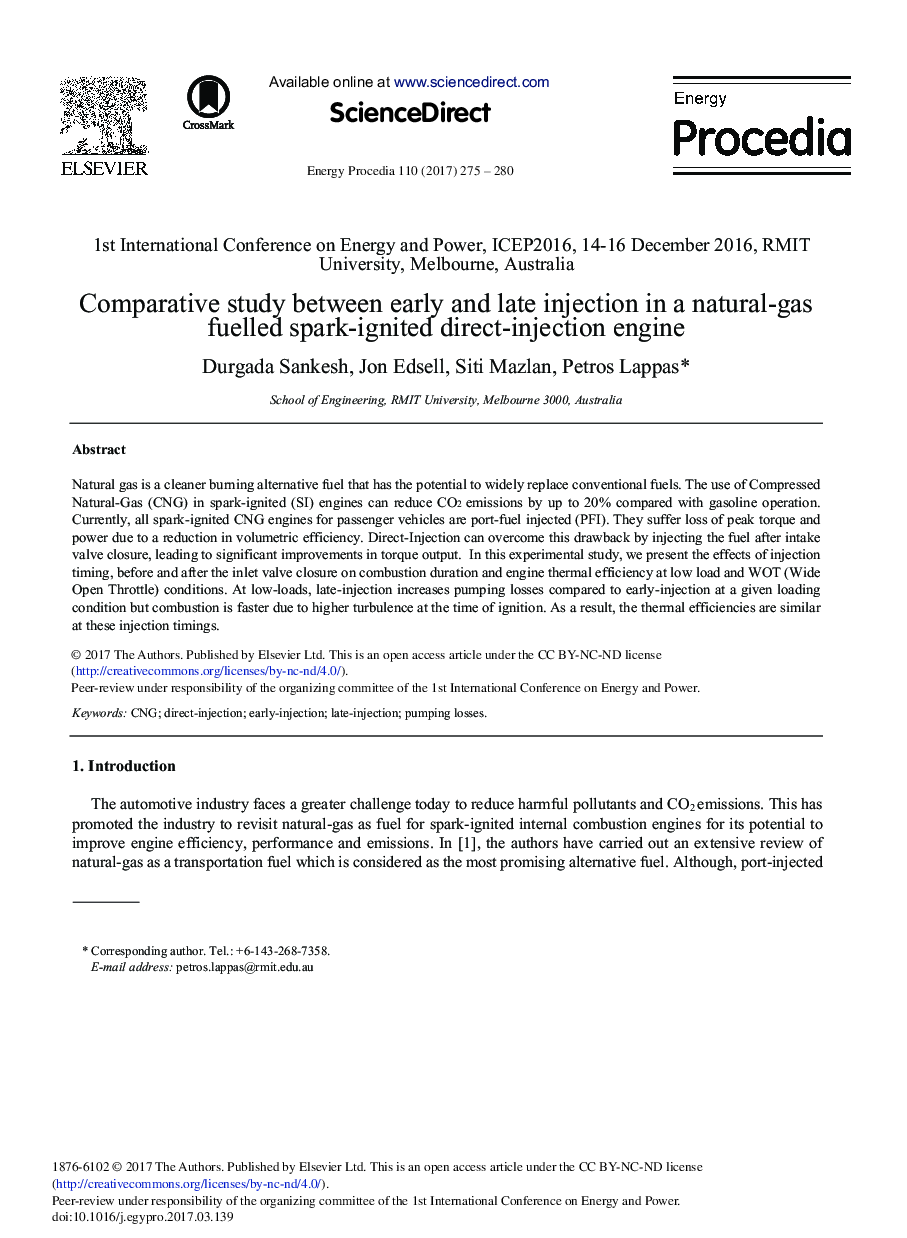| Article ID | Journal | Published Year | Pages | File Type |
|---|---|---|---|---|
| 5445738 | Energy Procedia | 2017 | 6 Pages |
Natural gas is a cleaner burning alternative fuel that has the potential to widely replace conventional fuels. The use of Compressed Natural-Gas (CNG) in spark-ignited (SI) engines can reduce CO2 emissions by up to 20% compared with gasoline operation. Currently, all spark-ignited CNG engines for passenger vehicles are port-fuel injected (PFI). They suffer loss of peak torque and power due to a reduction in volumetric efficiency. Direct-Injection can overcome this drawback by injecting the fuel after intake valve closure, leading to significant improvements in torque output. In this experimental study, we present the effects of injection timing, before and after the inlet valve closure on combustion duration and engine thermal efficiency at low load and WOT (Wide Open Throttle) conditions. At low-loads, late-injection increases pumping losses compared to early-injection at a given loading condition but combustion is faster due to higher turbulence at the time of ignition. As a result, the thermal efficiencies are similar at these injection timings.
